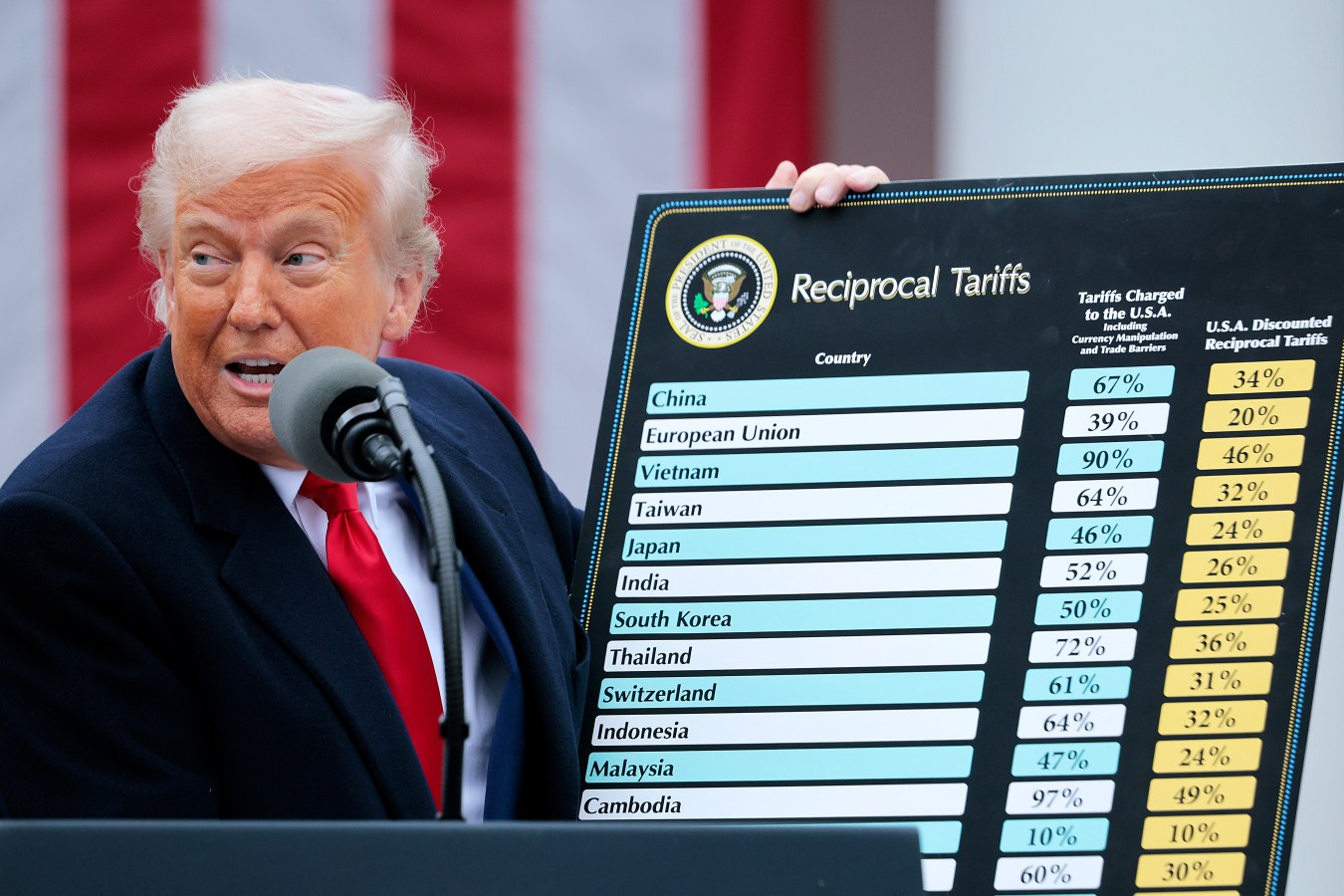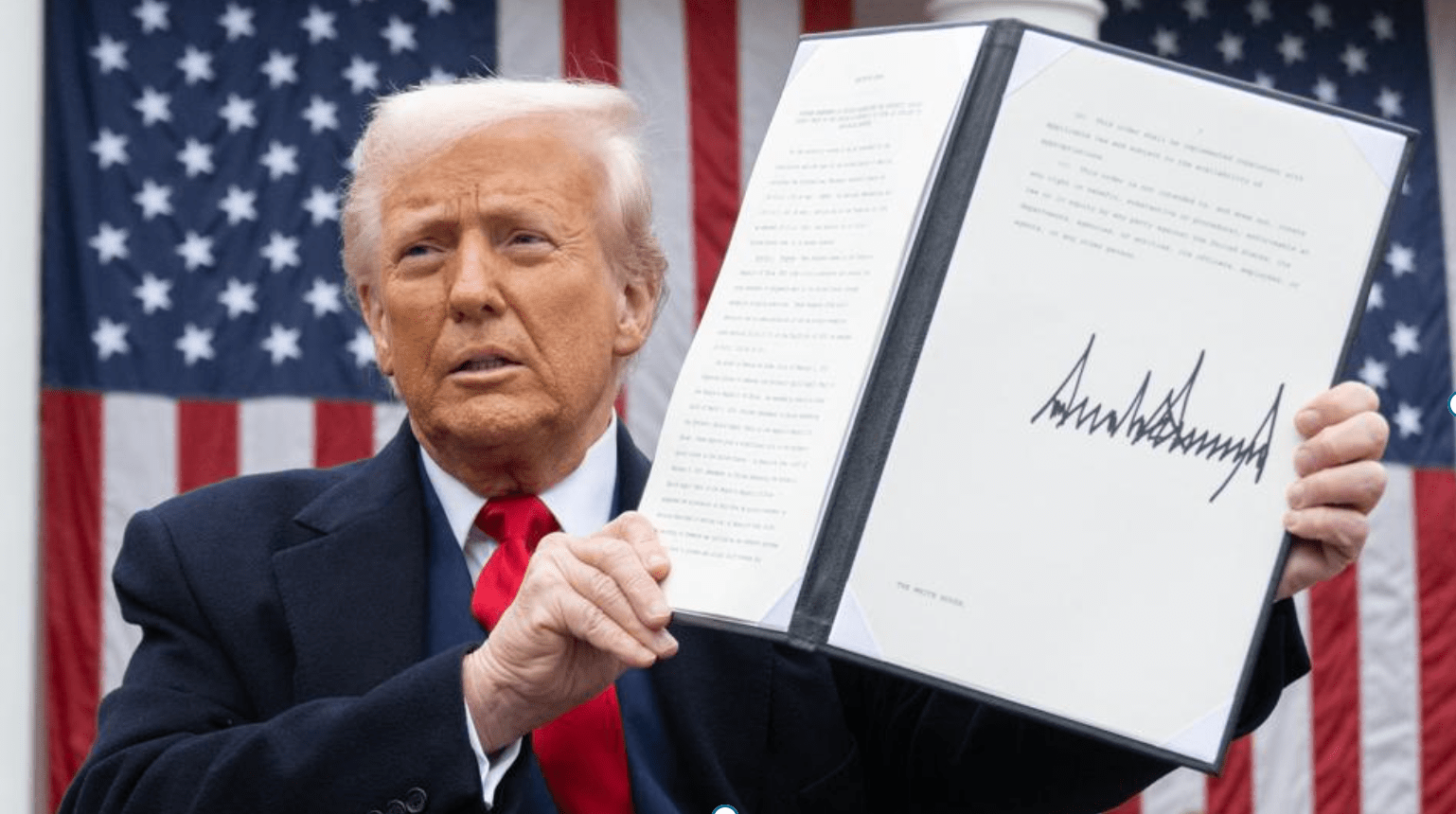Projections after the polls closed in the first round of high-stakes early parliamentary elections in France on Sunday suggest the far-right National Rally got more votes than any other party with roughly 34% of the vote, the opposite of what President Emmanuel Macron was attempting to achieve when he called a snap election to quell a rising tide of nationalist parties.

President of the French far-right party Jordan Bardella.
Getty Images
Key Takeaways
- France’s public broadcast channel is predicting a win for National Rally with the New Popular Front leftist coalition (which includes socialist and communist parties) in second place at 28% and the centrist Together for the Republic coalition (including Macron’s Renaissance party) trailing with 20%, The Washington Post reported.
- Thirty-four percent of votes is well short of an absolute majority, but if National Rally wins the second round of voting next month, a far-right party will hold the most power in France since the World War II-era Vichy government.
- Sunday was the first of two rounds of elections (the second will wrap up July 7) to choose 577 members of the National Assembly, France’s influential lower house of parliament, in an election that was not due to be called for another three years.

French President Emmanuel Macron at the Foreign Ministry in Paris on March 16, 2023.
POOL/AFP via Getty Images
Why Is France Holding Elections?
Macron called the National Assembly elections three years earlier than required after his party fell in a June 9 European election to the National Rally party, a group led by party president Jordan Bardella, 28, and French far-right stalwart Marine Le Pen, 55. The National Rally party has been historically hostile toward the country’s Muslim community, has a past rooted in racism and antisemitism and has ties to Russia, according to the Associated Press. After the loss, Macron called on France’s people to build a new coalition of those “who do not recognise themselves in the extremist fever.”
Why Are The French Elections So Controversial?
Instead of restoring power to the center, polls suggest Macron may effectively end up handing power to the National Rally by calling the election early. Days ago, he defended his decision as “the heaviest, the most serious, but the most responsible” solution. Macron has said he won’t step down before 2027, when his presidential term expires, even if his party is weakened in the elections.
What Is At Stake In The French Elections?
If National Rally wins the parliamentary majority, Macron would likely have to name Bardella as prime minister, splitting the two most powerful jobs in government between two different parties. Bardella has told voters he will “restore order” and curb immigration if put in power. If his party does not secure an absolute majority in the National Assembly, Bardella has said he’s not interested in the job. In that scenario, Macron’s choice for prime minister would still need to reflect the make-up of the new Assembly. He could try to find someone within the second-largest party to appoint, according to The Guardian, or ultimately make his own pick (which could lead to a no-confidence vote). If Bardella becomes prime minister, it will be the first time that power has been shared between parties since the early 2000s. It has happened only three times in France’s history.
When Will We Have Results For French Elections?
Official results are expected later in the day Sunday. A second round of voting will take place July 7.
Surprising Fact
Bardella has a large presence on TikTok. The young politician has 1.7 million followers as of Sunday and has been spurred to success by his popularity among young voters and women (Bardella has promised to protect women’s rights). His presence on the platform paints him as young, relatable and approachable, and he’s posted videos that include him wine tasting, doing shots and roasting opposition party members.
Key Background
Issues like immigration, the rising cost of living and inflation have been at the top of voters’ minds heading into this election. Macron and his pro-business stance is seen as out-of-touch by everyday residents, the Associated Press reported, and his popularity has been falling. Macron’s party did not secure an absolute majority in the 2022 National Assembly elections, which creates somewhat of a gridlock in government, much like when Congress and the White House are controlled by different parties in the United States. If the election forces Macron to install a prime minister from a different party, that gridlock is only expected to worsen.
This article was originally published on forbes.com
Are you – or is someone you know -creating the next Afterpay or Canva? Nominations are open for Forbes Australia’s first 30 under 30 list. Entries close midnight, July 15, 2024.
Look back on the week that was with hand-picked articles from Australia and around the world. Sign up to the Forbes Australia newsletter here or become a member here.


